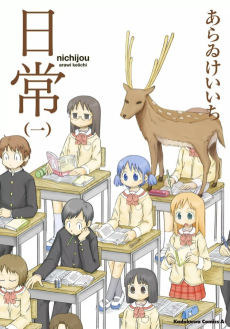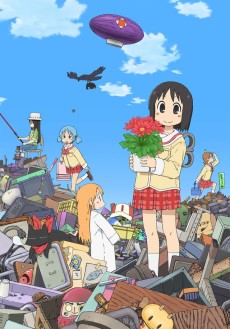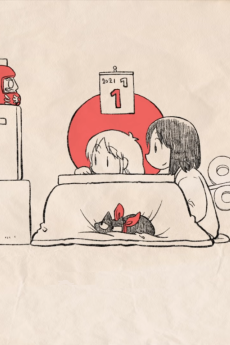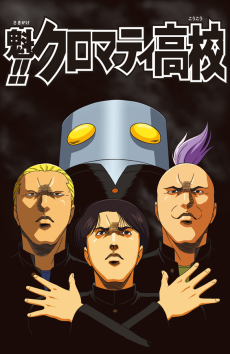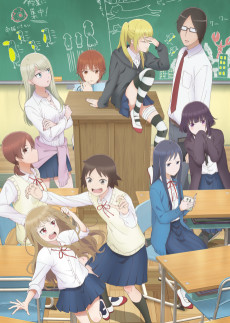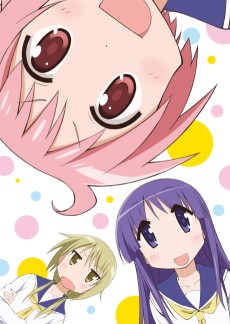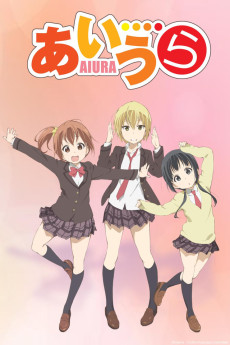NICHIJOU
STATUS
COMPLETE
EPISODES
26
RELEASE
September 25, 2011
LENGTH
23 min
DESCRIPTION
Nichijou primarily focuses on the daily antics of a trio of childhood friends—high school girls Mio Naganohara, Yuuko Aioi and Mai Minakami—whose stories soon intertwine with the young genius Hakase Shinonome, her robot caretaker Nano, and their talking cat Sakamoto. With every passing day, the lives of these six, as well as of the many people around them, experience both the calms of normal life and the insanity of the absurd. Walking to school, being bitten by a talking crow, spending time with friends, and watching the principal suplex a deer: they are all in a day's work in the extraordinary everyday lives of those in Nichijou.
[Written by MAL Rewrite]
CAST
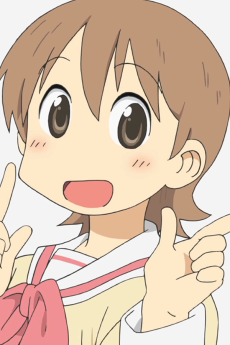
Yuuko Aioi
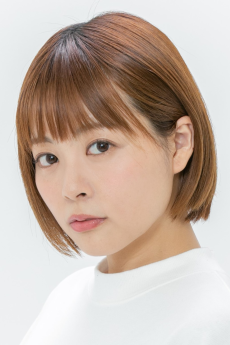
Mariko Honda
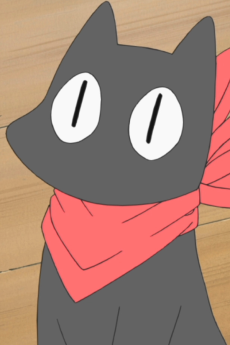
Sakamoto
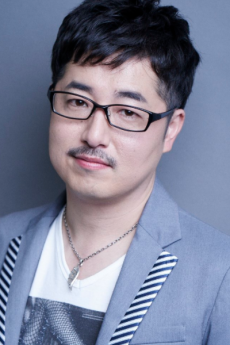
Minoru Shiraishi
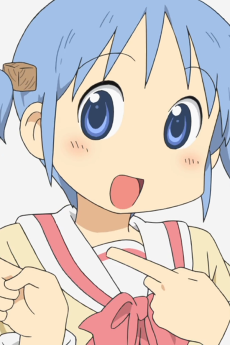
Mio Naganohara
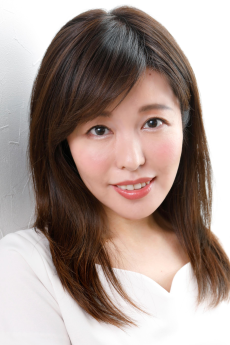
Mai Aizawa
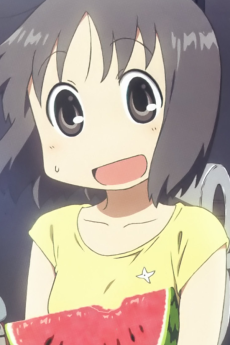
Nano Shinonome
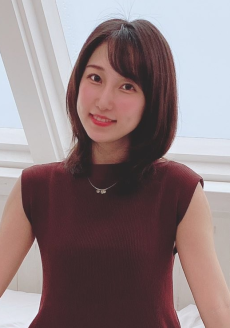
Shizuka Furuya
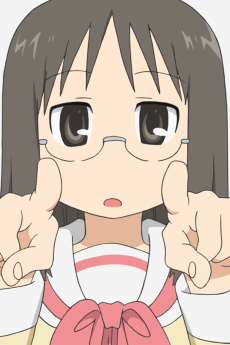
Mai Minakami
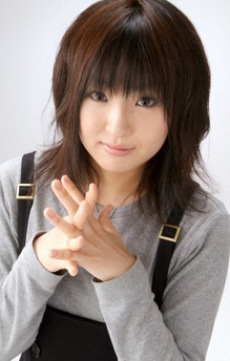
Misuzu Togashi
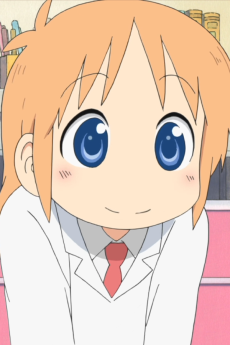
Hakase Shinonome
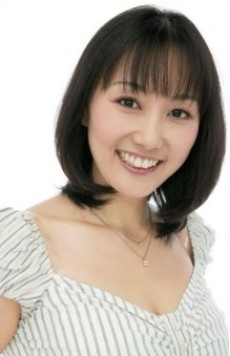
Hiromi Konno
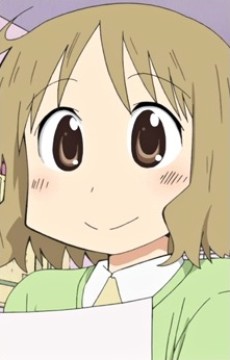
Izumi Sakurai
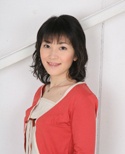
Mami Kosuge
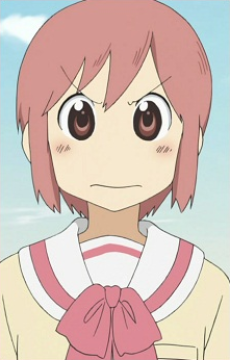
Misato Tachibana
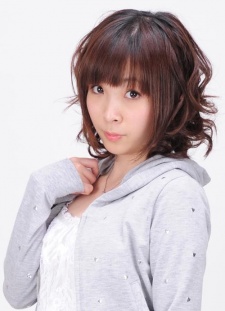
Chika Horikawa
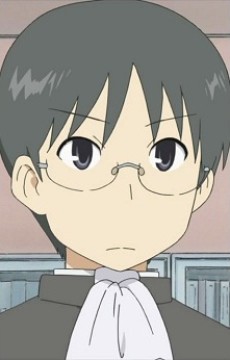
Koujirou Sasahara
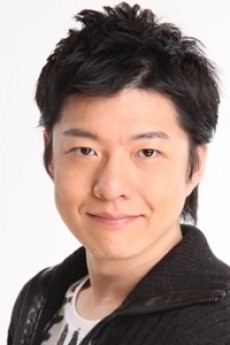
Yoshihisa Kawahara
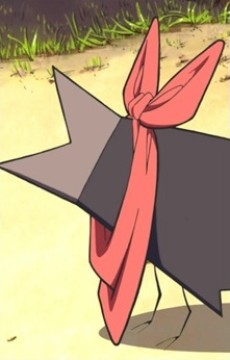
Karasu
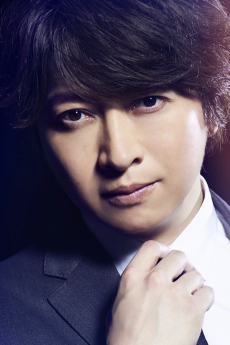
Daisuke Ono
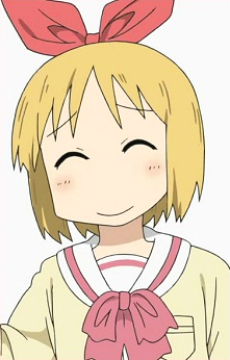
Haruna Annaka
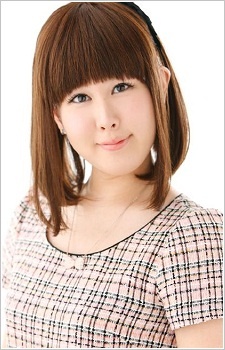
Kaori Sadohara
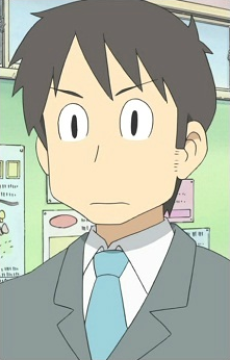
Manabu Takasaki
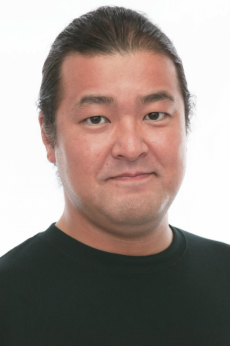
Tetsu Inada
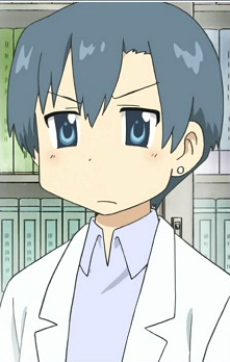
Kana Nakamura
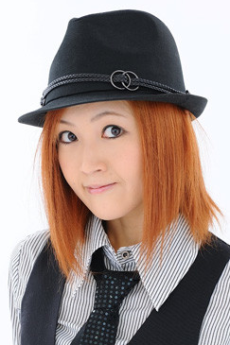
Kaoru Mizuhara
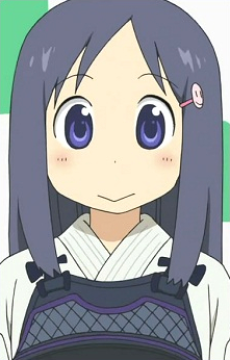
Yoshino Naganohara
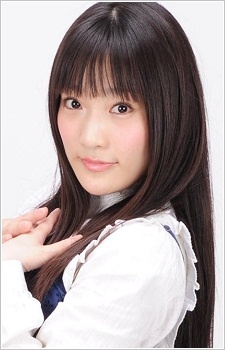
Motoko Kobayashi
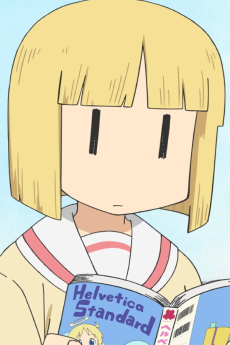
Yuria Sekiguchi

Ai Hirosaka
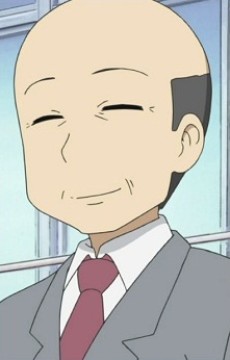
Kouchou-sensei
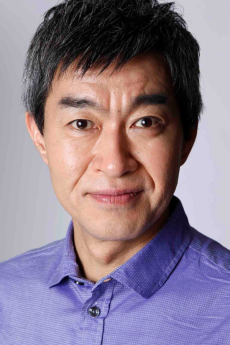
Choo
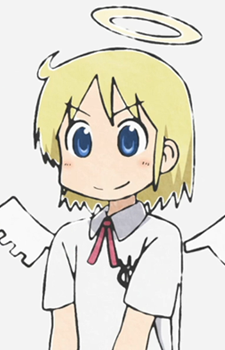
Pino
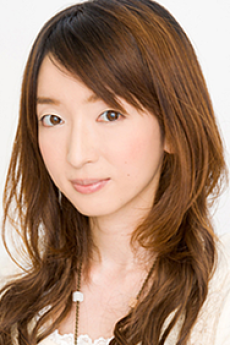
Kaori Mizuhashi
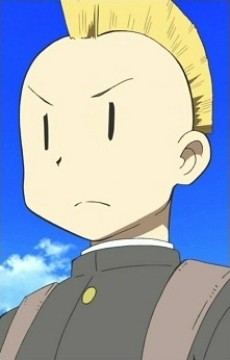
Tsuyoshi Nakanojou
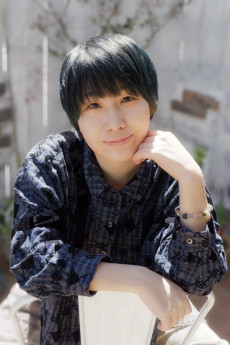
Kazutomi Yamamoto
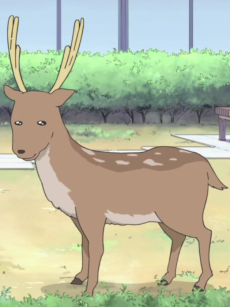
Shika
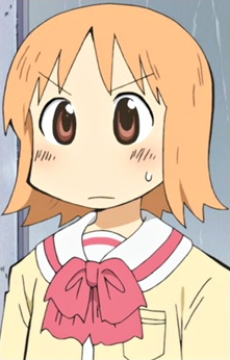
Fecchan
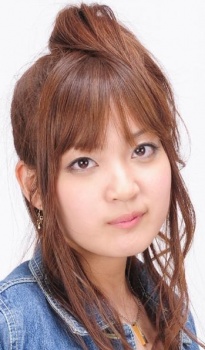
Yumi Higuchi
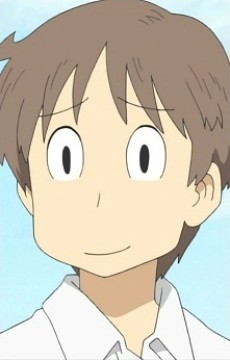
Kenzaburou Daiku
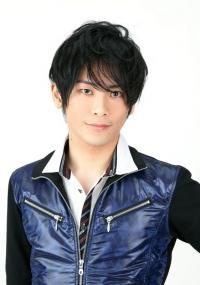
Ryouta Yoshizaki
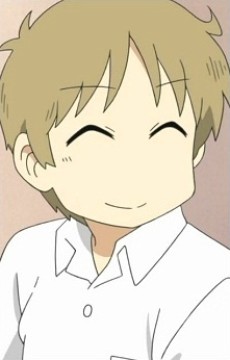
Makoto Sakurai
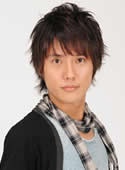
Takahiro Hikami
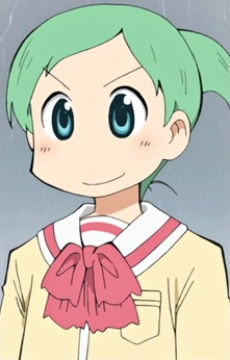
Weboshi
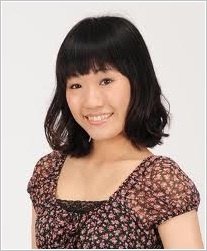
Youko Tamaoki
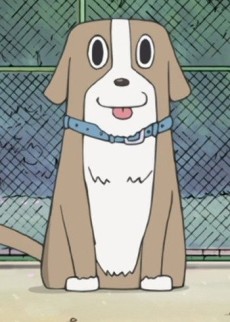
Oguri Cap

Minoru Shiraishi
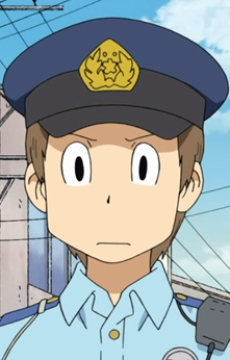
Keikan

Jin Domon
EPISODES
Dubbed
RELATED TO NICHIJOU
REVIEWS

Rollo
90/100Thoroughly heartwarming.Continue on AniListPlot
Nichijou follows the story of, well, there are multiple stories actually. The main story-line features Yuuko, Mio, and Mai, middle-school students who basically have a completely normal life. Now, that may sound boring but trust me, watch the first episode (or all of them) and you'll see exactly why people love it so much. The second story-line features Nano and the professor. Nano is a robot created by the 8-year old professor to help around the house. That also sounds really boring, but trust me. It's amazing. The other story-lines come and go throughout different episodes. Just a bunch of fun shorts cut in there. There honestly isn't much else to say about the plot, since it changes every episode. There's no overarching journey or challenge for the characters to overcome over the span of the whole show.
What I like
Nichijou is a hilarious "slice-of-life"-styled show that earns its score from how much of an actual slice of life it really is. I should elaborate. The main characters are middle-school kids. Everything is exaggerated in their eyes. It's hard to put that kind of thing into words but this anime captures it perfectly. The show is so funny because of how overblown they make every little thing in their daily lives. For example, swatting mosquitoes suddenly becomes a DBZ-Naruto-drama-action-battle with all-out crazy effects. And then Yuuko's mother coming in and telling her she's too loud and needs to go to sleep. It captures the middle-school kid mindset perfectly, which is a huge part of why I absolutely love this show. While watching the show it actually really brings me back to when I was a kid and when all this kind of stuff was my slice of life.
There are sort of multiple stories happening at the same time that it switches in between every now and again during each episode, which cameo in each other every once in a while. I think this was handled very well, the show never felt rushed or anything like that. The tone of the show gets major props. Another note is between the characters Nano and the professor. They have such an interesting and hilarious dynamic, because the professor made Nano to help around the house, but Nano ends up being like a mother to the professor anyway, telling her not to eat too many snacks before dinner and reminding her to brush her teeth. It's very, very interesting and sets up for adorable jokes.
Not to mention that it's a nice break from all the common tropes you see in seasonal anime. The show doesn't fall into anything like fan service and it doesn't feel like it was pumped out just to make money. This show clearly had massive amounts of love put into it, it feels extremely genuine.
This show resonates with me. It makes me happy.
Aside from all of that however, there is one small note I'd like to make. It was kind of hard to pick up on all their names. It might just be because I'm still pretty new to anime and aren't completely accustomed to subtitles, but it might be worth it to point it out anyway.

TheRealKyuubey
90/100This is what animation was made for.Continue on AniListOnce upon a time there was a land that was unbound by the rules of logic and physics that would otherwise govern our everyday lives. Since the people living in this world have never seen our world, they have no idea what the existence of impossibility feels like, so to them, chaos was normal. The idea of people exhibiting overpowered, world-ending, supernatural powers but only at random self-contained moments is as normal for them as… as… You know what? Screw it. I do plot summaries for every review I write, and I’m not too humble to say I’ve managed to put some TRULY incomprehensible plots onto paper in my day, but this is it. This is the one I can’t do. This is my Amy’s Baking Company. I am not going to stress myself out by trying to put this series into some form of understandable context. Nichijou is insane. It has a bunch of characters in it, and they’re all insane. The wide and expansive cast includes the students of Tokisadame High School, their teachers, their parents, and their neighbors.
Out of the two groups of characters that make up the bulk of the series’ run time, the first group consists of three teenage girl friends… There’s Mio, a normal, average school girl who’s easily swept up by the whims of her friends, which consist of Yuuko, the excitable idiot with so much energy that she could probably call Jolt a downer, and Mai, the weird bookworm who plays by her own rules without ever breaking from her stoic attitude. The second bunch is made up of three very odd individuals living under the same roof. There’s Hakase, an eight year old genius whose intellect doesn’t prevent her from acting her age, and she lives with two of her greatest creations… Sakamoto, a tomcat who can talk thanks to a special bandanna, and Nano, an older looking robot girl whose similarities to the average teenager are belied only by the giant key sticking out of her back. These character are of course crazy and unpredictable all on their own, but when you drop them into a world where princely farmers ride goats to school, people drop wet noodles down slides and dog bites cause Hyper Beams, their ordinary lives can and will become anything but.
Nichijou was produced by Kyoto Animation, and I would argue that it couldn’t have possibly been on their plate at a better time. Kyo-ani was, at one point, known for pouring money into their anime, giving it’s animation an absurd level of fluid motion and lifelike quality. This went on until they decided to go cheaper, as we’ve discussed in my Clannad Afterstory review. This new style, which was a major step down, would be carried on through the second season of K-on, where enough was enough, and a return to form was in order. The first anime produced after K-On!! was… You guessed it… Nichijou. This series is in many ways a return to form for Kyoto Animation, as it feels very much like a transition from their lazy animation period right back to their older style, with both styles very much present in it. It also brought back that high level of effort and budget that the company had been sorely lacking, taking them into a new period that would carry on until they would eventually lose focus again with Tamako Market.
Yes, in many ways, Nichijou was to 2011 what Free would be in 2013… A much needed revival for a company that was losing it’s mojo. Appropriately enough, just like Free, the animation in Nichijou is so lavishly funded that I couldn’t find a single sore spot. It still would have looked flawless with only 75% of the budget it was given. It features a gorgeous mix of fluid animation from Kyo-ani’s first period and the sloppy, cheaper style from it’s second period, both used to their absolute best depending on the situation. Every single movement is fluid, from complicated dance moves to over-exaggerated wrestling moves to beautifully rendered computer graphics for whenever someone… Um… Shoots a laser out of their mouth. Almost every single moment on screen is bursting with energy, at least of course when it’s intended to be. They have no problem slowing things down when necessary, either as part of the build up to a joke, or those weird moments when a character learns a lesson and poetic text appears with them on screen. These slower moments, which often feel like a break from the otherwise erratic pace, are often used as excuses to show off the exquisitely designed backgrounds, almost photorealistic in their presentation, and they greatly complement the much simpler looking characters in the foreground.
In terms of character design, It looks like a combination of Azumanga Daioh and Lucky Star, and I mean that in the nicest way possible. It combines the small bodied moe-blob aesthetic and low line-count of Lucky Star with the more grounded facial structures and high budget animation that’s constantly showing itself off from Azumanga Daioh, and it results in character designs that are unique and very easy on the eyes, yet completely child-friendly with no attempt whatsoever to sexualize them. The characters are brightly colored(with the exception of Mio, but I’m guessing that was intentional), and can be presented in a number of different art styles, with changes in outline, detail, and even hard swaps between conventional anime eyes and simple black lines to convey their expressions. Honestly, it’s hard to talk too much about the animation in this show, because it can do whatever it wants to, and does, with only as much consistency as it wants to have. It can be dramatic, it can be ridiculous, it can be intense, it can be laid back… And it never really fails at any of it.
The same could be said for the music, which was composed by Studio Ghibli veteran Nomi Yuji, who really does give the series a menagerie of differently styled background tunes to work with. The most memorable tunes in the show are probably the children’s sing-a-long style tunes that play during Hakase and Nano’s cutaways, I personally prefer the happy and carefree theme Ukiuki Happiness, as well as the more intense tunes that I unfortunately couldn’t find names for, but I remember loving most of them in the show. Both openings are addictive as hell, and despite having many similarities to each other… They’re both sung by a band named Hyadain, combining a single male main singer with synchronized female background singers, and they’re just catchy and fast-paced enough to keep up with the videos, which provide a sample of the fast and precise animation from the show. There are plenty of different songs used for the second ending theme, but I personally prefer the one song they used for the first ending, the pleasant and relaxing Zzz by Sayaka Sasaki.
There’s no English dub here, and I would normally never talk about Japanese acting, since I don’t have the right kind of experience to judge acting in another language, but even MY untrained ears could tell just how good the original voice acting in this series is. I don’t know what well of energy Mariko Honda had to reach into to play the hyper idiot Yuuko, but I kept expecting her to injure her vocal chords and be replaced from just how fast and off-kilter the role demanded her to be. Mai Aizawa didn’t sound like she had quite as difficult a role in the more down to earth Mio, but considering just how much that character suffers from the actions of her peers, and how many times she has to play the character as angry and defeated, it had to be at least close to as tough. As Mai, Misuzu Togashi only really had to stay at one register, but she still carried enough casual cruelty in her voice to fit the character. Hiromi Konno played a standard, cute little child character, but when you remember that she also played Akira in Lucky Star, you have to wonder just how much effort she put into making the role sound easier than it was.
Speaking of Lucky Star, Minoru Shiraishi is back, this time playing a talking cat who is, of course, at the mercy of his former Lucky Channel partner. He doesn’t sound quite like his other characters, taking a more deep-voiced and mature approach to his new feline identity, and last but not least there’s Shizuka Furuya in the role of Nano, who’s been assigned the more soft, moe-type voice, which makes it kinda difficult to judge the job she does. Luckily, the main cast is made to sing their own character songs and a lot of insert/ending songs as well, and she’s at least notable as a good singer. Interestingly enough, the cast is rounded out by a plethora of experienced voice acting veterans who play not actual characters, but inanimate objects that appear in an episode, and then deliver the next episode preview at the end of said episode. some examples of this include industry giants like Aya Hirano playing a slice of cake, and Megumi Ogata playing a banner of tiny flags, and no, I am not making either of those up. I’d love to hear a dub for this anime where they do the same with a bunch of uncast guest stars, and I think a Sentai dub would be wonderful, but I’m still perfectly happy with just the sub.
It’s been said before many times, and it still rings true, that animation is a limitless art form. A single illustration can contain a universe of images that would be impossible to replicate in real life, and turning that illustration into a feature of pretty much any length can express an artist’s imagination in explicit detail, and has the potential to go on to entertain billions. Whether the animation is done on paper or on computer, the only conceivable limit to what’s possible lies in the existing color spectrum. Having said that, while there’s virtually no limit to what you CAN do in an animation, adding the rules of story-telling places a harsh limit on what you SHOULD do. For a plot and story to work, the universe the story takes place in has to follow a pattern of logic, and even if that logic doesn’t fit in with the real world, it has to at least remain consistent in it’s own universe. Even if breaking the rules of the created universe is only used for comedy, it winds up feeling lazy and confusing, especially since following the logic of the universe takes a lot more effort and attention to detail, making lore-friendly jokes and gags feel all the more rewarding.
Take, for example, Looney Tunes. Characters are constantly shooting each other, playing repetitive jokes on each other, and even dying in some scenes, with the status quo erasing any consequences of their antics against each other. This works, because the Looney Tunes know they’re in a cartoon. They make constant references to their own animators, and even to the existence of the audience, so when Elmer Fudd falls for the same trap again and again, there’s an underlying understanding that he’s doing it to entertain us. No matter what happens, there’s an understandable in-universe explanation from it. Compare that logic to a Rooster Teeth cartoon, Xray and Vav, where there is no in-universe explanation to anything the characters do. The main characters jump up and touch dicks… Why? A scientist tries to kill one of them with a ray gun, he turns to dust, but he’s still talking and goes back to being unhurt less than thirty seconds later, and when he makes a remark about it, she threatens to do it again. Why? It didn’t work the first time, so why threaten to do it again? This is the kind of fallacy that the Looney Tunes are smart enough to avoid.
Getting back to anime, one of the worst story arcs of all time was the Lost Island arc from Nadia, which I’ve discussed in a previous review. It’s awful from start to finish, it ignores all logic and characterizations up until that point, and it begins with… You guessed it… One of the characters using Looney Tunes logic, inflating like a balloon and being fine a moment later, all because the new director didn’t give two fucks about the work the previous director had set down before him. In shows like Clannad, certain characters are capable of executing high-flying video-game style combat moves, and this is officially canon. The series is careful not to put them in situations where they’d need to use those abilities but can’t, because that would be inconsistent and, frankly, a plot hole. That’s not to say all anime NEED to follow rules or consistent logic… There are some anime where craziness and weird occurrences are the norm, but they’re normally relegated to a weird character entering a previously normal world, like in FLCL, or they’re completely aimless and inconsistent to the point where it all just winds up feeling dull, like Hare + Guu. And that’s if they’re not wildly immature like Panty and Stocking.
And that brings us to Nichijou, which goes about it’s business by taking random weirdness in a new, and kind of obvious in hindsight direction: It takes place in a universe where a complete lack of logic or sense IS the consistent logic of the universe. When you run into a person by accident, it can cause a huge explosion, and nobody is harmed from it. When your crush is out of line, literally shoot them in the face with a gun, and once the smoke clears, he might have to wipe off his fake glasses. Nichijou exists in a world where anything can happen at any given time, and while the events going on may follow the barest of a cause-and-effect criteria, it’s almost impossible to predict where anything is going to go. Before going into this series, I thought that the title “My Ordinary Life” was kind of a bland and generic name to give to a slice of life series, but it couldn’t possibly be more perfect, because by calling attention to the fact that this is their ordinary life, you’re forced to accept that these characters have grown up in, and are perfectly used to, a land that’s only a few forced metaphors away from becoming The Dodo’s Wackyland.
And I’m not stating any of that as a point against the series, either. This set-up is perfect for the cast of characters and style of comedy that this series brings to the table. In every way that matters, Nichijou is designed for two things, and the first one is the exploitation of possibilities. The show;’s three principal characters, Mai, Mio and Yuuko, have the kind of dynamic where you could put them in any situation imaginable and get something funny out of it, provided you’re trying to. Yuuko is always trying to be the center of attention, trying to make her friends laugh and get one over on them. Mai is always trying to quietly and subtly beat her at her own game, finding weirder and much more eccentric ways to mess with the girl who’s trying to mess with her. Mio is the accommodating girl, trying to keep up with and appease them, and even though she wants to be the normal one and the voice of reason, she still has dark secrets to hide, she still violently over-reacts to things, and she’s really just as crazy as they are.
They have perfect chemistry not just with each other, but with the people around them, too. Yuuko has her parents and teachers to deal with, highlighting her bad grades and refusal to properly study. Mio has a boy she has a crush on, a yaoi manga she’s trying to get off the ground despite her shame over it’s contents, and she also has an older sister who won’t stop tormenting her. Mai is… Well, I don’t want to spoil anything Mai does, so let’s move onto the second group, which I enjoyed quite a bit more. With the characters of Hakase and Nano, you have this really interesting dynamic that you could almost consider a passive-aggressive power struggle. Both girls have some legitimate claim to authority over the other, which adds an extra layer of intrigue to their interactions. Hakase created Nano, and has the ability to remodel her and control her at will, but Nano is the caregiver, the nanny if you will, and she exercises a small amount of parental authority on her inventor. Throw in a talking cat that’s smarter and more mature than either of them, but still needs help with the basic needs of survival, and you’ve got a recipe for boundless material.
Take these two groups, place them into your no-logic world, and there is nothing you can’t do with them. The writers clearly knew this, because they took their time exploring both groups thoroughly on their own before finally having them meet halfway through the series, and it winds up being am atch made in heaven as Nano finally gets permission from her creator to go to school, and her friendship with the three main girls is sparked by their confusion over the giant metal key on her back. People would have accused Nichijou of jumping the shark if they timed this intersection poorly, but they didn’t, so the unification of both groups begins while they’re still both going perfectly strong on their own. If I’m being honest, though, there was one character in the supporting cast who I never really liked, and it was the gunslinging girl. Yeah, I get what they’re doing with her… Parodying the tsundere trope… But unlike the vast majority of the cast, including the side characters that were built off of her, everyone’s good for multiple jokes, while she just feels like the same one over and over again.
But she does lead us to Nichijou’s other purpose in design… To make fun of the slice of life genre, as well as the moe comedy sub-genre. The tsundere gun-gal is really the only blatant attempt they make at it, though, but it’s kind of hard to explain how they do this the rest of the time. For a quick example, take the once-in-a-lifetime wrestling match between Hulk Hogan and Shawn Michaels. Hogan is notorious for having an ego and fucking over other wrestlers to make himself look good, and Shawn was booked to lose this match. so what did he do, you may ask? He made fun of his opponent by over-selling all of his moves. If Hulk so much as threw a punch, Shawn would go tumbling out of the ring like a ragdoll, and the fans knew exactly what he was doing. It was like when Tom Green made fun of all the tired cliches in late nineties rom-coms in his shit movie Freddy Got Fingered, although not nearly as soul crushing. See, the genre that Nichijou is parodying is full of overblown emotions, dramatic and tense editing and cinematography that camouflages the mundane, and general melodrama.
Thus you have Nichijou, blowing ordinary everyday occurrences out of proportion in a much more on-the-nose, ridiculous manner. That’s why, when someone gets bitten by a dog, they fire off a beam from their mouth that takes out a satellite. That’s why, when two girls are chasing each other through the school, the camera tilts, the art becomes monochromatic and everything stretches like they’re going into hyper-drive. That’s why there are random contained occurrences that feel like they were taken from the writers’ weirdest dreams. I originally dropped this series a few years ago, because I couldn’t wrap my head around what it was doing or the kind of humor it was using, and I just wound up getting confused, right up until a few months ago when a friend of mine put it all into context for me. My most recent rewatch was much more rewarding, and I found myself laughing than any other anime that I’ve seen in recent memory. It’s just like Mio said… You never know what’s going to happen next, and that’s what makes it interesting.
Nichijou is available from Funimation. The DVD bluray combo pack was released in February, and it can be viewed on their website. The English language manga is also available stateside from the publisher Vertical, and there’s an OVA episode called Episode 0 that’s not quite as good as the series, but it’s about as good as a pilot episode can be. I normally don’t ever mention fan-made AMVs, but if you go on Youtube, there’s an AMV set to the song Safety Dance that provides a much better preview for the series than you’re likely to find anywhere else.
You know, it just occurred to me that in my review of Nichijou, I spent three whole paragraphs not talking about Nichijou. You could probably write this off as an accident, but it really wasn’t. I had to go abstract in order to set up my thoughts on the series, because, well, good comedy is really hard to talk about at length. All you can really do is say it was hilarious, then spoil all the good gags, which is something I tried to do as little as possible, because Nichijou is almost all gags, and you really need to go in blind to enjoy them. I guess if there’s anything left to talk about, it’s the wide appeal. Pretty much anyone can enjoy this show, and yet it’s completely safe for younger audiences. There’s no fanservice, there’s no attempt at titillation… I mean, there’s a porno joke, but it’s no worse than the one from Ed, Edd and Eddy. There’s a couple of questionable lessons, but they’re few and far between. Honestly, this is probably the first slice-of-life anime I’ve ever seen that had a ton of female characters, but not one instance of those same characters comparing or getting jealous of each other’s breast sizes, and that alone is a refreshing change of pace. It’s not perfect, and humor is subjective, but I can’t think of anyone I wouldn’t recommend this title to. I give Nichijou a 9/10.

thomasghouse
90/100"You never know what's gonna happen - that's why it's fun."Continue on AniListCan a comedy be good if it's not funny? After watching this show, I'm inclined to say yes.
Short version: I recommend Nichijou even if you're usually let down by comedy anime. Even when I didn't laugh a single time during an episode, I had a lot of fun. This series compensates for every joke that doesn't land with a unique, charming atmosphere that makes it immensely enjoyable. It's a classic.
I don't find most Japanese humor I've seen funny. Usually, when the joke is "this situation sure is strange!" or "look at that crazy reaction!" I find myself utterly disinterested and painfully let down. The kind of jokes anime most often tell can be done well, but they're usually not taken far enough to work (at least not by my culturally different standards).
Despite what I'd hoped when starting the show, Nichijou does not pull this style of comedy off consistently.
While watching it, I often found myself feeling like this guy:
Humor is largely subjective, and there's nothing wrong with having different kinds of comedies for different people. But humor is not the only thing a comedy can offer to entertain. Nichijou provides so much that I found it impossible to dislike it. Even when whole episodes went by with nothing I considered laugh-out-loud funny and even scenes that I found annoying, I wanted to keep on watching. There are three reasons for this:
One, the show did make me laugh a lot. The situations presented can be hilarious, and when the show does hit you with a punchline, it's genuinely good.
Two, the characters were for the most part enjoyable to watch and relatable.
Three, the stellar presentation creates such a compelling atmosphere that I wanted to come back to it again and again just to experience it. Central to that presentation is the music, which is memorable and gives every scene and by extension, the whole series life, as well as the animation, which is one of the best (and funniest) points about the show - expressive, inventive and often very satisfying to watch. (That's coming from a complete layman - I hope that speaks to the quality on display here.)Nichijou is not only a Japanese comedy but also an absurdist comedy. This is also part of the reason why it works so well - an unfunny joke/situation was often saved by something absolutely ridiculous, often either as a background element, or a punchline. Absurdity makes the show unpreditable, which is crucial, especially in this genre.
The series plays with everyday situations, often using exaggerated animations - which fail to make me laugh in most other contexts, but are done really well here. I often found myself laughing because of how far they went to illustrate something that isn't funny on its own.
This juxtaposition of everyday situations, ordinary, very relatable issues with unique absurd elements and presentation is at the center of the appeal of the show.If that sounds like something you might enjoy (and even if it doesn't!), I recommend you give Nichijou a try. I don't regret a second of my time spent on it - even though most of those seconds were not spent laughing.


SIMILAR ANIMES YOU MAY LIKE
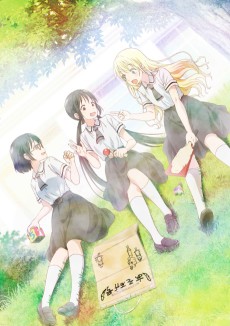 ANIME ComedyAsobi Asobase
ANIME ComedyAsobi Asobase TV SHORT ComedySaiki Kusuo no Ψ-nan
TV SHORT ComedySaiki Kusuo no Ψ-nan ANIME ComedyLucky☆Star
ANIME ComedyLucky☆Star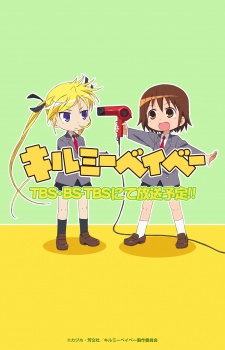 ANIME ComedyKill Me Baby
ANIME ComedyKill Me Baby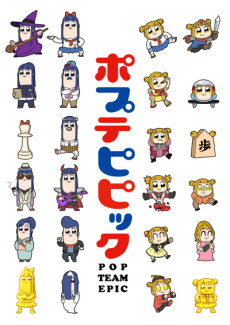 ANIME ComedyPoputepipikku
ANIME ComedyPoputepipikku
SCORE
- (4.15/5)
TRAILER
MORE INFO
Ended inSeptember 25, 2011
Main Studio Kyoto Animation
Trending Level 5
Favorited by 9,790 Users

